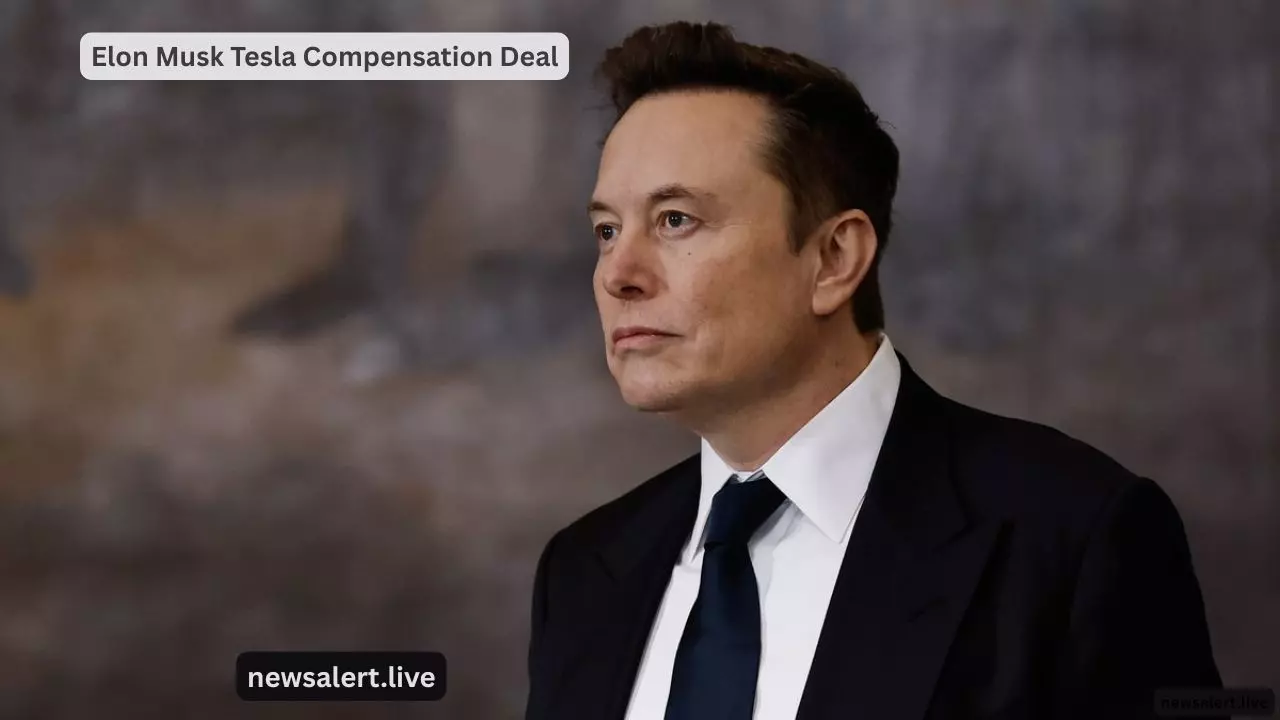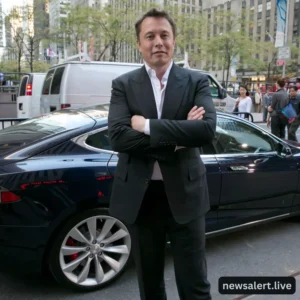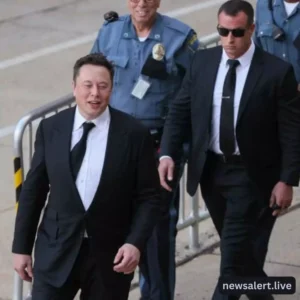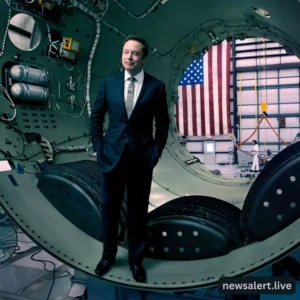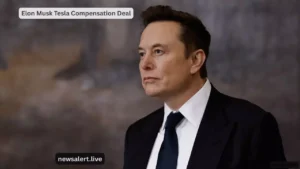Tesla offers Elon Musk a $30 billion compensation deal after court rejects his earlier $50B package. Here’s what it means for Tesla’s future, AI race, and shareholders.
Elon Musk Tesla Compensation Deal: $30B Gamble That Could Reshape Tesla’s Future
Tesla has once again captured the global spotlight—not for a revolutionary vehicle or a stock market shakeup, but for a bold boardroom move that could determine the company’s destiny. On a recent Monday morning, Tesla shares surged after the board granted CEO Elon Musk 96 million new shares worth an eye-watering $30 billion. The goal? To keep Musk firmly at the wheel as Tesla ventures deeper into AI, robotics, and energy innovation.
The new Elon Musk Tesla compensation deal arrives after a previous $50 billion package was invalidated by a Delaware court in early 2024. Now, questions are flying across Wall Street and Silicon Valley alike: Is Musk worth this new mega-deal? Can Tesla thrive without him? And what does this mean for the future of executive compensation in tech?
This blog dives deep into every angle—from legal controversies to investor reactions, from AI strategy to political overtones—and explores why this deal is far more than just a paycheck.
Chapter 1: Background – The Rise and Risk of a Visionary
The Birth of the First Mega-Deal
In 2018, Tesla’s board approved a $50 billion performance-based compensation package for Musk—then the largest ever in corporate history. It was meant to reward him for achieving impossible milestones like skyrocketing Tesla’s market cap and revolutionizing the EV sector.
The package was conditional—Musk would only earn if he delivered on a series of aggressive growth targets. And he did. Tesla became the most valuable carmaker in the world. Yet despite hitting those goals, a Delaware judge ruled in 2024 that the pay structure lacked proper board oversight and unfairly diluted shareholder equity.
This set the stage for the new Elon Musk Tesla compensation deal—a restructured plan intended to anchor the world’s most eccentric CEO to the company he built.
Chapter 2: The New $30 Billion Deal – What’s Inside
Tesla’s new proposal offers Musk 96 million shares—valued at approximately $30 billion—in what’s being seen as both a reward and a retention mechanism. Unlike the earlier deal, this one is designed with stricter oversight and more transparency.
Key Terms:
-
Share-Based Compensation: No cash payout, only stock.
-
Vesting Conditions: Likely tied to future milestones to avoid past legal pitfalls.
-
Board Transparency: Includes more detailed disclosures for shareholders.
Analysts believe this deal is more palatable to regulators while still being compelling enough to keep Musk from shifting his focus to side ventures like X.ai, SpaceX, or his rumored third political party.
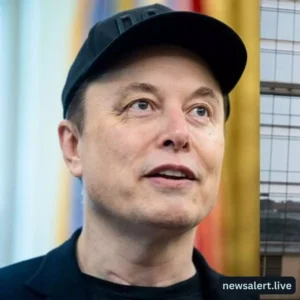
Chapter 3: Why Tesla Needs Musk More Than Ever
Tesla is facing strong headwinds: falling vehicle sales, increased competition, and political controversy. Yet Dan Ives from Wedbush Securities puts it bluntly:
“The biggest asset for Tesla is Musk. The board needed to do this.”
The Musk Factor:
-
AI and Autonomous Vehicles: Tesla’s AI ambitions are directly tied to Musk’s vision and leadership.
-
Investor Confidence: Many shareholders trust the company largely because of Musk’s involvement.
-
Innovation Culture: Tesla’s “move fast and break things” mantra flows from Musk’s risk-taking style.
Without Musk, the company could lose its competitive edge in what many call the AI arms race—a battle Tesla is fighting against tech giants like Nvidia, Meta, and Microsoft.
Chapter 4: Critics Fire Back – Is He Really Worth It?
Not everyone is thrilled about the new Elon Musk Tesla compensation deal. Critics cite several concerns:
-
Stockholder Dilution: Granting millions of shares reduces value for existing shareholders.
-
Political Distractions: Musk’s growing political commentary is seen as a liability.
-
Market Performance: Tesla’s stock is still down 25% YTD despite the new deal.
Public Sentiment:
Many Tesla enthusiasts support the deal, but a growing portion of institutional investors worry Musk may be spread too thin—dividing attention between Tesla, X (formerly Twitter), Neuralink, SpaceX, and more.
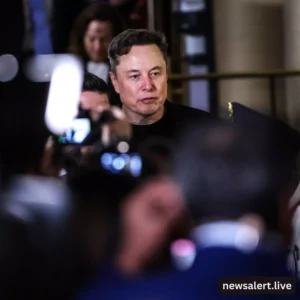
Chapter 5: The AI Arms Race and Tesla’s Real Future
The new deal isn’t just about electric cars—it’s about artificial intelligence. Tesla’s robotaxi platform, Dojo supercomputer, and Optimus humanoid robot are all part of a grander AI ambition.
Why Musk Matters in AI:
-
Visionary Leadership: Musk predicted AI’s centrality years before most competitors.
-
Cross-Company Synergy: Tesla, X.ai, and SpaceX may eventually share AI tech under Musk’s umbrella.
-
Investor Narrative: The market increasingly sees Tesla as an AI-first company, not just an EV maker.
In that context, the Elon Musk Tesla compensation deal isn’t just about compensation—it’s a bet on the future of intelligence.
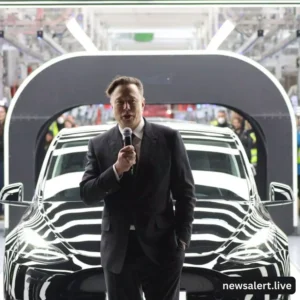
Chapter 6: What’s Next – The Crucial November Vote
The current share grant is a backward-looking reward, but the real turning point comes in November 2025 when Tesla’s board proposes a forward-looking compensation package.
Key Questions for Shareholders:
-
Will Musk stay through 2030 or beyond?
-
Will the next package be even bigger?
-
Will investor confidence hold if Musk declines?
The board’s gamble is clear: they believe tying Musk to Tesla long-term will bring outsized returns—even if the price tag raises eyebrows today.
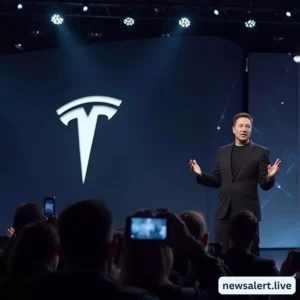
Chapter 7: Executive Compensation in the Age of Visionaries
Tesla’s move sets a precedent. Other companies—especially in AI and tech—are closely watching. Will Meta offer Zuckerberg a similar deal? Will Nvidia tie performance more strictly to Jensen Huang?
The Elon Musk Tesla compensation deal could spark:
-
New models for CEO retention
-
Stricter board oversight policies
-
Increased scrutiny from regulators and activist investors
What we’re witnessing isn’t just about Tesla—it’s a litmus test for the future of leadership in high-stakes innovation.
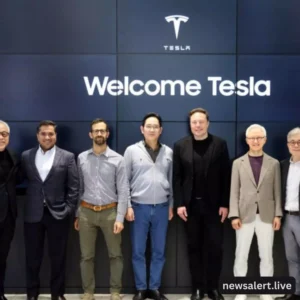
Conclusion: A High-Stakes Gamble on a High-Voltage Leader
In the world of electric vehicles and artificial intelligence, one man’s influence looms larger than life. Tesla’s new $30 billion compensation deal isn’t just about retaining a CEO—it’s about betting on the future of innovation, disruption, and leadership.
If the Elon Musk Tesla compensation deal succeeds, Tesla may redefine the limits of AI-driven transportation and robotics. If it fails, it could become a cautionary tale of unchecked ambition.
For now, the wheels are in motion, and all eyes are on November.
FAQs: Elon Musk Tesla Compensation Deal
Q1. What is the Elon Musk Tesla compensation deal?
It’s a $30 billion stock-based package offered to Elon Musk after a court voided his earlier $50B deal. The goal is to retain Musk at Tesla.
Q2. Why was Musk’s original $50B pay package invalidated?
A Delaware court ruled it unfair to shareholders due to lack of oversight.
Q3. Why is this new deal considered significant?
It’s viewed as a strategic move to keep Musk focused on Tesla amid the rise of AI and competition from tech giants.
Q4. What risks does the deal pose?
Shareholder dilution, public criticism, and over-reliance on Musk’s leadership are key concerns.
Q5. How does this impact Tesla’s AI future?
Musk is central to Tesla’s AI ambitions, including autonomous vehicles, robotaxis, and humanoid robots.
Q6. Is there another compensation deal coming?
Yes, a forward-looking compensation plan will be proposed at Tesla’s November 2025 shareholder meeting.
Q7. Could this change how CEOs are paid across the industry?
Yes, this deal could set a precedent for how AI-era tech leaders are compensated.
Q8. How are investors reacting to the new deal?
Mixed. Some see it as necessary; others worry about Musk’s political distractions.
Q9. What happens if shareholders reject the November proposal?
It could unsettle investor confidence and even prompt Musk to shift focus to other ventures.
Q10. Will Musk remain CEO until 2030?
If the next package is approved, that’s likely the goal.

